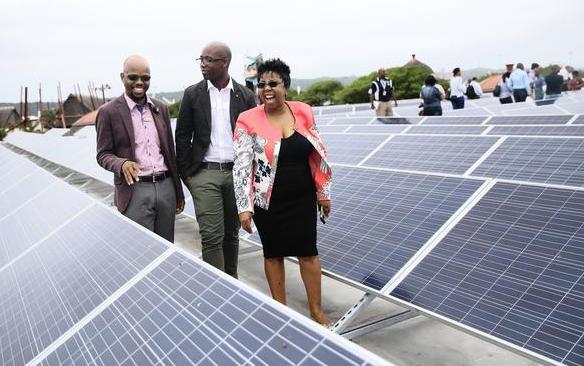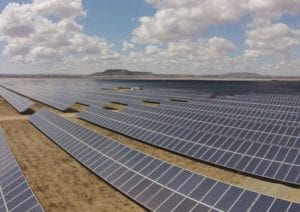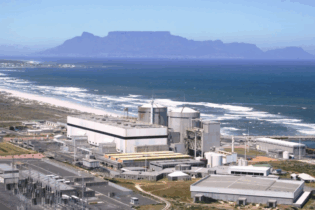
eThekwini councillor Ntandoyenkosi Khuzwayo, Energy Office acting manager Sibusiso Ntshalintshali and uShaka Marine World chief executive Stella Khumalo view solar panels installed on the roof of the theme park as part of a pilot solar energy project. Picture: Supplied
Municipal buildings benefit from project
The project has seen the installation of solar PV panels on five municipal buildings. This is part of a pilot project that aims to promote the use of embedded rooftop solar PV generation in eThekwini and reduce the dependence on the national energy grid. The municipality said that this project also serves as an example for the private sector and other municipalities to learn from. How the system worksThe Energy Office Solar (EOS) project consists of roof-top mounted solar PV panels which are made up of cells that convert sunlight to direct current (DC) electricity, the municipality said. The DC power is converted to alternating current (AC) by inverters and the AC power is used on electrical equipment/loads within the buildings. The system is a grid-tied system with no batteries, meaning any power produced by solar panels subtracts from what the buildings are using from the grid/eThekwini electricity, the municipality said. This is achieved by specialised and advanced inverters, it added. “The project aligns with Plan Eight in the City’s Integrated Development plan which aims to create a financially accountable and sustainable City,” the municipality said in a statement. “Renewable energy programmes such as these, aim to decrease the dependence on the national electricity grid and facilitate market transformation in the energy sector.”
Project serves as education platform
The municipality said its vision to launch the solar energy project was also to provide learning opportunities about PV installations. “The project will allow for learning around various aspects such as electricity generation profiles at different times of the day and year of the various technologies and sizes, quality control, monitoring and evaluation of electricity,” the municipality said. “The lessons learnt will feed into policy development to expand the number of renewable energy installations in eThekwini,” it added.Thando Khumalo, from the department of human settlements and infrastructure committee represented the mayor at the launch of the project.
She said: “Such installations go a long way in furthering awareness on the benefits of renewable energy. “In the long term, the city hopes to expand the programme and hopes that residents and more business will take up the use of renewable energy that will place out city on a truly sustainable path,” she added. Project manager Sbu Ntshalintshali said the pilot installations are expected to save the city 426,75MWh a year. “This translates to R337 396 in the first year alone,” Ntshalintshali said. “It is expected that the benefits will rise incrementally as time goes by. This project will allow the municipality to test its own policies and practices.” Solar PV installations around eThekwini The installation at uShaka Marine World Theme Park boasts the largest installation of solar PV with a capacity of 165,4MWh per annum. Other building installations include the Sky Car at the Moses Mabhida Stadium, People’s Park restaurant, Metro Police Headquarters and the eThekwini Water and Sanitation Customer Service Department. The municipality indicated that the energy generated by the solar PV System is consumed by operations of the said buildings resulting in energy saving by reducing the buildings energy demands. Metro Police, Sky Car, People’s Park and Water and Sanitation Department are expected to save 137,4MWh, 6,84MWh, 40,43MWh, and 76,68MWh respectively in a year.






